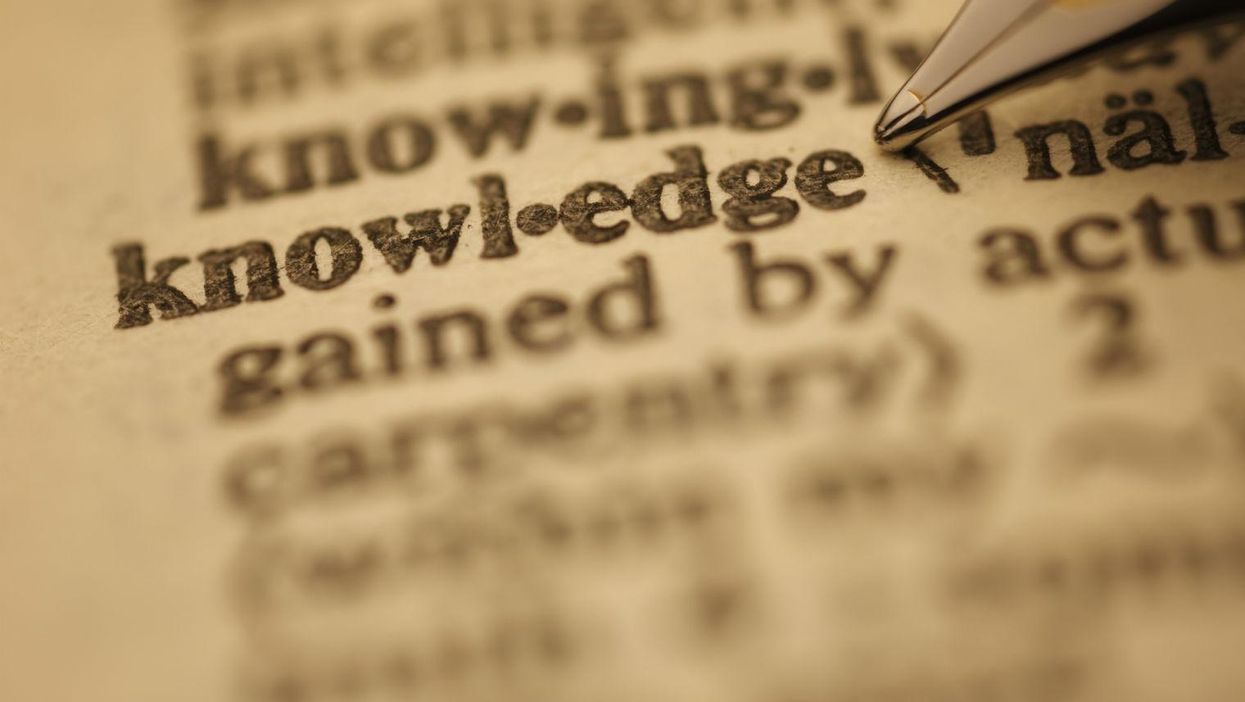News
Narjas Zatat
Sep 12, 2016

There are some English language rules that have been drummed into all of us from primary school days. You know how it goes:
‘I’ before ‘E’ except after ‘C’ - even though there are only 44 words that follow the rule, and 923 that don't (we guess this is where the 'A' as in 'neighbour' or 'weigh' rule comes in).
But there are some which are unwritten and people apply with their everyday speech nonetheless.
1. Adjective order
Mathew Anderson is the author of a book called The Elements of Eloquence and he recently tweeted one section of it:
The passage reads:
...adjectives in English absolutely have to be in this order: opinion-size-age-shape-colour-design-origin-material-purpose noun. So you can have a lovely little old rectangular green French silver whittling knife. But if you mess with that word order in the slightest you’ll sound like a maniac. It’s an odd thing that every English speaker uses that list, but almost none of us could write it out. And as size comes before colour, green great dragons can’t exist.
Think about that for a second. Let it sink in.
There is a rule that you know even though you probably didn’t know it existed.
Which is why, quite frankly, you can have a beautiful large new round golden bowl, but you can’t have a round bowl golden large… you get the picture.
Here are four more rules that you probably use but wouldn't be able to define:
2. Ablaut reduplication
You may have, of a time, said 'Kong King' or 'cross-criss' to provoke everyone around you.
This is when you repeat a word with a different vowel. Like Spike Milligan’s poem:
On the Ning Nang Nong where the cows go bong and the monkeys all say boo
That sounds okay, but the second line in the verse sounds utterly, tragically wrong:
There’s a Nong Nang Ning where the cows go ping!
The unwritten rule of ablaut reduplication states if there are three words, the order has to go I, A O and if there are two, the first is I and the second is A or O.
3. Tenses
You probably can’t explain what present perfect simple, conditional progressive or present progressive tenses are but when you say you’re playing Playstation, you’re using one of them!
There are 12 tenses in the English language. Dare you to name them all in the comments. Don't Google.
4. Letter stresses
When you read poetry - even if it doesn't rhyme - you'll naturally do so with a rhythm. It's because we seek rhythmic patterns in sentences and points of stress.
Whether a structure is intended to be iambic, trochaic, or alliterative, you're sure to find it.
de-DUM-de, de-DUM-de, de-DUM-de
5. Crutch words
These are like words that are used like really often that don't like add meaning or value to the like sentence at all. Like.
Who said education stops after school? Class dismissed.
HT BBC
More: Here are 30 of the most bizarre phrases in the English language and what they actually mean
More: Only a true master of the English language can pronounce all the words in this poem
Top 100
The Conversation (0)














